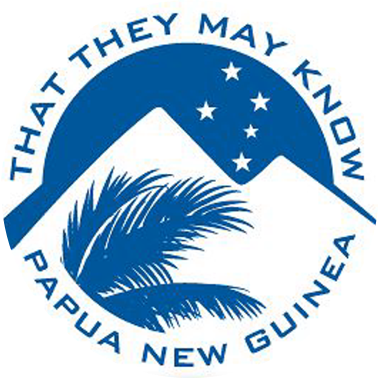
Margaret, my language helper, and I finished the fourth and final primer in October 2009. Upon its completion we immediately bowed in prayer and then sang songs of praise unto the Lord. My heart was full of joy as I thought, “Can this be true? Can God use these simple books for His Word to go forth?” Much work still has to be done in checking them. The fourth primer stretched my language ability as it progressed beyond simple sounds and grammar.
I was able to take the primers to multiple villages and sit down with the people. I would explain to them that if they can learn to read these four books they will be able to read the Bible someday. The eagerness in which some people sat for hours trying to discern the symbols and sounds of their own language, you would have thought it was the Bible itself. Those that couldn’t read at all I read aloud to them and they marveled at the little black and white drawings and the stories in their language. The Kamea people are just starting to realize the difficulty level involved in learning to read. Pray that the Lord will give them the needed motivation and perseverance to learn. The Kamea language is difficult to read because of the large consonant clusters, the length of the words, and the frequent glottals.
I packed my backpack and took the four primers on their first large test. I visited some of our preacher boys’ villages to see how the people would accept the primers, what ages responded to them the best, and to check if my vocabulary and grammar was correct in the primers. The stories could be endless, but mainly I want to tell you of the excitement in which the primers were received. I was able to present the primers in three villages in five days.
I spent the first two nights in Anewa. Here they mistakenly announced that, “Sister Cherith has brought four books of the Bible in Kamea with her.” That was a difficult statement for me to try to correct. Anewa was the deepest bush village that I presented the primers in. The men were eager, but the women very stand offish. Two men were especially interested, Nicodemus and Lazarus. I started them both in primer one and left to visited some other villages. When I came back several hours later they were still reading. They made it to primer three before they headed home. They asked me to come to their house again the next day.
Page after page they got more interested, delighted in the black and white drawings, and thrilled that I was speaking their language so rapidly to them. Every time I stopped they would say “anta fi” (some more.)
As the day wore on the women got closer and closer to me and eventually I was able to pull out the primers and as I do with everyone explain the purpose of the primers is to teach them to read so they can read the Bible. They didn’t respond much but then I started reading to them and asked them to help me make corrections if I said anything wrong. Page after page they got more interested, delighted in the black and white drawings, and thrilled that I was speaking their language so rapidly to them. Every time I stopped they would say “anta fi” (some more.) They finished my sentences and often would retell the stories to new ladies walking up.
That night as we sat around the fire, Rosalyn the pastor’s wife said. The men will learn how to read, my sons will learn how to read, but who will teach the women to read their Bibles. She kept talking as she wiped the tears from her eyes. As she continued rapidly in Kamea, I thought through a typical Kamea woman’s day- work the garden, carry very heavy bilums, fetch water and fire wood, fix dinner, care for the many children, do laundry, etc. They can barely make it to bed before they collapse. This is why most of the women are so stand offish. They know this is not something that will fit into their lives. Pray the Lord gives us a way to implement reading for the ladies that will make it achievable. The next morning before heading down the trail I sat with Rosalyn for about a half hour and told her that she would learn to read. When I opened primer one an irreplaceable smile swept over her face. We worked through the first five pages and if you would ask Rosalyn she would have told you that she was learning to read.
The majority of the rest of the week I stayed at the base of Kemu’s mountain with Luke and Getti. In the four days that I was with them they read no less than fifteen hours in the primers. Outside of Margaret my language helper, Getti is the only lady that has been able to make progress in the primers. Often I would sit in between Luke and Getti and I had Kamea reading in stereo around me. Getti continually tells me that she has to learn how to read so she can tell more people about Christ. She says, “They don’t know Pidgin or English, we must tell them in tok ples (Kamea).” She never talks about her own advantage of reading the Bible. I believe the Lord will greatly bless her desire.
The excitement and acceptance of the primers was overwhelming. The Kamea people are learning that this may be their language but reading it is going to take hard work. The job of writing the primers and testing them is just the first phase in a long process. Please pray that these primers will be used as a tool to prepare our people to receive the Bible.
